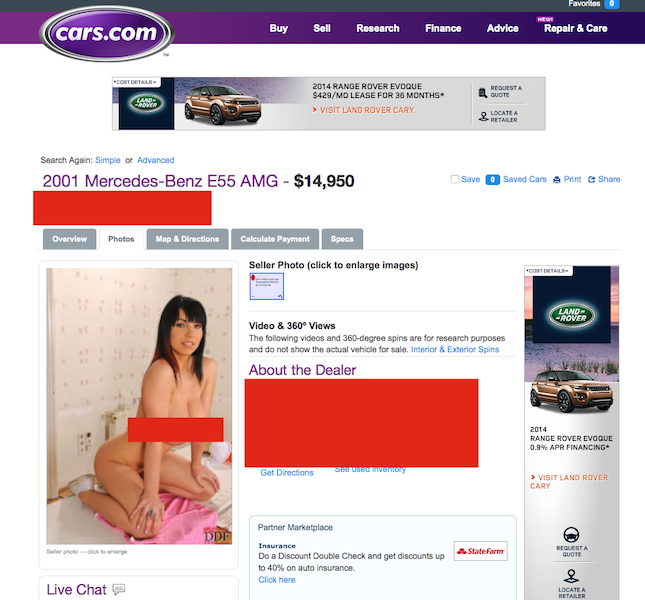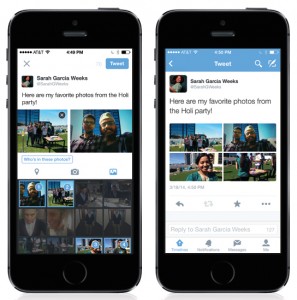 Large companies seem to be adopting the mentality that an excellent customer buying experience will lead Millenials and other car shoppers to rethink the old stereotypical process of buying vehicles. In the past, customers had retail experiences filled with Sharpies, high-pressure sales tactics, long waits and upsells in finance which ended up filling entire days in many cases and left consumers with bad impressions of the buying process. As the Internet evolved and offered consumers with alternatives, transparency in information and ways to circumnavigate as much of that process as possible, dealers found themselves altering their strategies.
Large companies seem to be adopting the mentality that an excellent customer buying experience will lead Millenials and other car shoppers to rethink the old stereotypical process of buying vehicles. In the past, customers had retail experiences filled with Sharpies, high-pressure sales tactics, long waits and upsells in finance which ended up filling entire days in many cases and left consumers with bad impressions of the buying process. As the Internet evolved and offered consumers with alternatives, transparency in information and ways to circumnavigate as much of that process as possible, dealers found themselves altering their strategies.
A wide spectrum still existed amongst dealers in exactly how far they were willing to take the process with some willing to be completely transparent & provide information online to those who only pretended to be helpful but truly only offered invitations to the dealership disguised as transparency. Some large dealer groups are trying to transition as much of the buying process online as possible now (a la MakeMyDeal etc.). Of course, the largest complaints I hear from dealers is the whole “race to the bottom” involved when encountering cross-shoppers. It’s always another $100 that it would take to make the deal on vehicles already being quoted into holdback.
What if, however, instead of transitioning the process online to make it more efficient for consumers, you transform the in-store process instead? Both would achieve the same goal of offering a pleasant and efficient buying experience without the involvement of Sharpies and countless trips to “talk to the manager.”
A solution may already be available.
I had the pleasure of sitting with Jason Barrie of DealerTrack who showed me some incredible innovative technology – some of which is available now and some which is coming soon – that would essentially transform the buying experience into one of consumer choice and efficiency. This tablet based sales process completely and seamlessly integrates everything from the initial pencil – leases and purchases – with multiple options for a consumer to choose the one that best fits their financial budget. Yes, I understand that this is very close to e-pencil products that have been around for quite awhile. What makes this unique is that it eliminates the back-and-forth that most consumers hate and transforms the buying process from adversarial to one that is consultative. All of the options are configured by the sales managers prior (in the sense of how much leeway – if any – they allow the salespeople to have in the process) so there is no loss of control and/or fear of a salesperson ditching gross to win a sale taking the easy path.
Since the customer’s information is already in the system, soft pulls on credit are performed and, once a deal structure is chosen, they are automatically submitted for approvals by the dealer’s lenders.
The process continues into F&I as all of that information is immediately available to the F&I manager via tablet and aftermarket products, including explanations and videos of the features & benefits of each, are available via a menu based system. Customers can pick and choose the products they are interested in which instantly shows them how additions/subtractions of those products affect their payments.
Once the consumer has solidified his or her choices, the contracts are immediately produced WITHIN THE TABLET for the consumer to sign without the phone book of paperwork necessary currently. Of course, compliance requirements still allow dealers to have physical copies for records but it creates a more pleasant and interactive experience on the consumer facing side. After all is said end done, deals are then submitted for e-funding through the chosen lender.
There’s no doubt that individually many of these products exist. What impresses me most is the seamless experience this complete integration brings to the in-store buying process and it’s potential to create a customer experience that is enjoyable and pleasant. Ultimately, whether we are talking about shifting car sales (and processes) completely online or transforming the in-store experience, it all boils down to one thing – consumers want a more efficient, faster and enjoyable buying experience.
Rather than shift focus to an online buying process, why not make it easy and pleasant for consumers to buy from you in whatever manner they want – online or in-store.
I’m writing this from the 2015 NADA Convention and felt compelled to urge dealers to go check this out at the DealerTrack booth #2219S – You don’t have to join the race to the bottom to create a better customer experience. You just need the right tools and this, my friends, is an excellent tool to implement.
[Note: In no way was I paid or otherwise compensated for this opinion nor was the article written at anyone’s request.]











